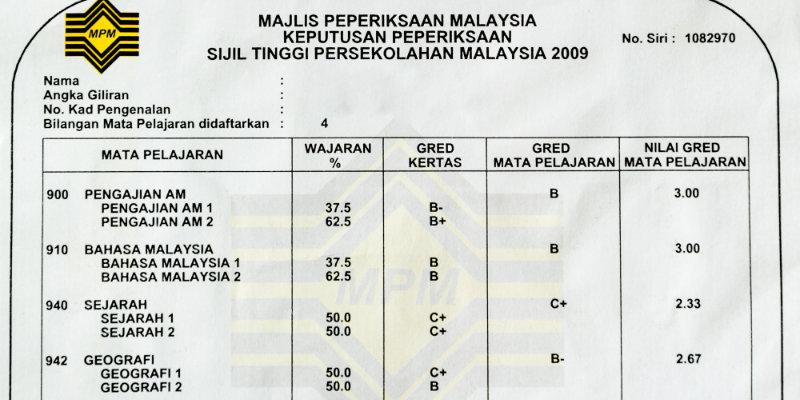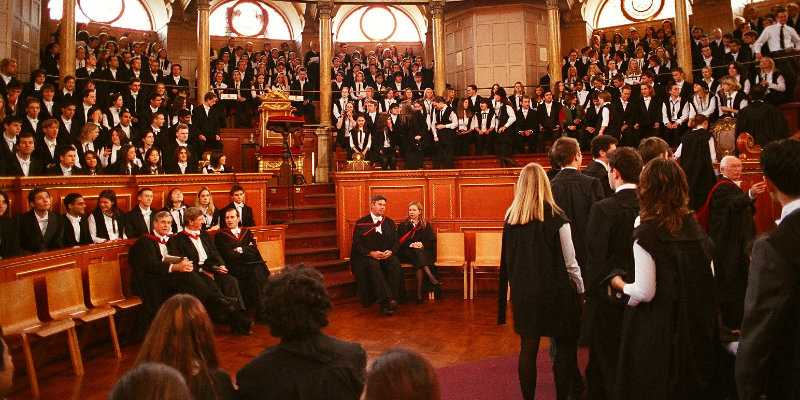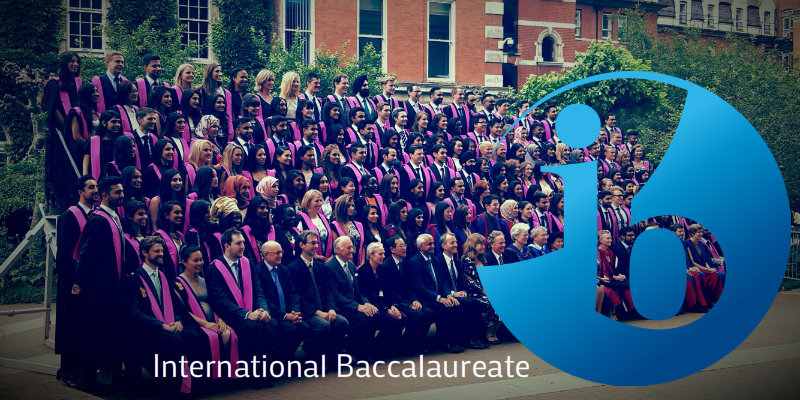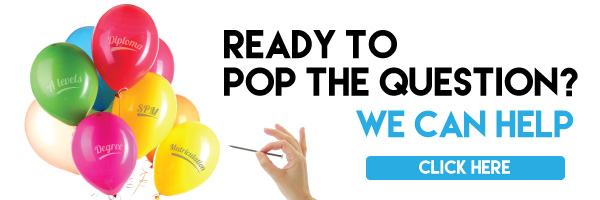Keep your tertiary options open with flexible pre-university choices

Afterschool Team
April 12, 2017
There's so much pressure on students to decide at a young age what to be and where to study.So what’s the best thing to do if you really have no idea?

Image via Pixabay
Many people (students and working adults alike!) have absolutely no idea what they want to do at university or for their career. That’s not a problem at all – it just means you need to keep your options open.
For starters, you can begin with these 3 easy tips:
- Choose subjects you enjoy – you will do better in your studies if you have an interest in the subject!
- Choose the SPM subjects in which you are predicted to get good grades – chances are you'll do well in these subjects at a pre-university level too, earning you better grades and therefore more university options.
- Choose a range of subjects – both humanities and science subjects. This will give you the greatest choice when it comes to applying for university.
It’s also worth thinking about the transferrable skills demonstrated by different subject choices. For example:
- Essay-based subjects such as English or History demonstrate analytical skills and critical thinking.
- Science subjects such as Physics or Mathematics demonstrate logic and familiarity with scientific principles.
- Practical subjects such as Art demonstrate self-discipline and creative thinking.
Or explore the possibility of working after SPM before or while pursuing a tertiary qualification here.
If you're a laid-back person with an anything goes perspective, there's nothing wrong in being a generalist. The only con to it is that there is a high competition in order to enrol into critical courses such as engineering, medicine, dentistry, pharmacy and law. So unless you are planning to take these popular courses, it should be okay for you to get some breathing space and enjoy your youth.
Here are the pre-university choices with diverse and flexible choices in subjects to be considered by all you generalists out there:
Form 6 (STPM)
Image via Wikipedia
Theoretically, you can take any courses you want as long as it is a minimum of four and a maximum of five subjects (including MUET). Some schools will offer a "subject package" but for those interested in deviating from the combo may consult with the teachers involved.
Read: Six ways to secure Band 6 in MUET your teacher won't tell you
It is also the cheapest option on this list and the new syllabus focuses so much more on coursework and presentations to allow you a feel of university life.
Programme duration: 1 1/2 years
Available subjects:
- Pengajian Am
- Bahasa Melayu
- Bahasa Cina
- Bahasa Tamil
- Bahasa Arab
- Literature in English
- Kesusasteraan Melayu
- Syariah
- Usuluddin
- Sejarah
- Geografi
- Ekonomi
- Pengajian Perniagaan
- Perakaunan
- Mathematics S
- Mathematics T
- Further Mathematics T
- Computing
- Physics
- Chemistry
- Biology
- Sains Sukan
- Seni Visual
Foreign Matriculation
Image via Wikipedia
The most popular options in Malaysia are the Canadian International Matriculation Programme (CIMP) and Australian Matriculation (SAM/AUSMAT). Unlike the Malaysian matriculation system where students subject choices are limited to what has been dictated by specific streams, the foreign matriculation programmes allow you to mix and match subjects.
How is the Malaysian Matriculation different compared to Foundation?
While both matriculation programmes include course work as part of their components; unlike many programmes where the emphasis is on a final exam, CIMP places emphasis on continuous evaluation.
Programme duration:
AUSMAT: 10 months (January intake), 8 months (March intake), 14 months (September intake)
CIMP: 1 year
Available subjects:
AUSMAT
(choose any 5 subjects only)
- Accounting & Finance
- Economics
- Business Management & Enterprise
- Psychology
- Biology
- Chemistry
- Physics
- English
- Mathematics (3A/3B)
- Mathematics (3C/3D)
- Mathematics Specialist 3C/3D
- English as an Additional Language
CIMP
(choose any 6 subjects only)
- Communications Technology
- Advanced Functions
- Calculus and Vectors
- Mathematics of Data Management
- Biology
- Chemistry
- Physics
- Exercise Science
- Financial Accounting Principles
- International Business Fundamentals
- Business Leadership: Management Fundamentals
- Canadian and World Issues: A Geographic Analysis
- World History: Since the Fifteenth Century
- Analysing Current Economics Issues (Social Science)
- Families in Canada
- Challenge and Change in Society
- Ontario Secondary School Literacy Course
- English
- The Writer’s Craft
A-levels
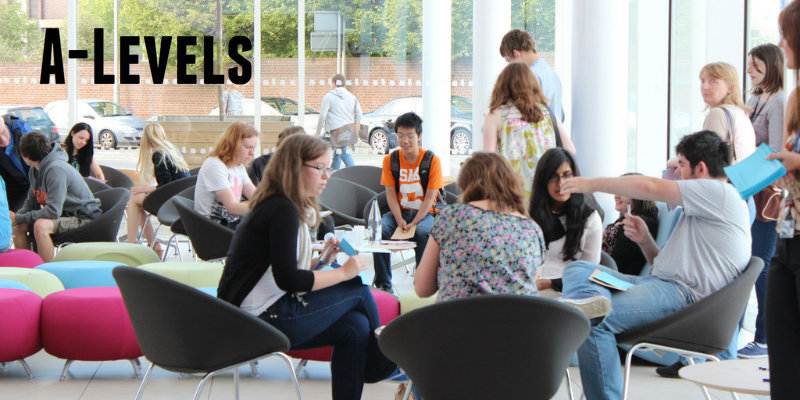
Image via City of Stoke on Trent Sixth Form College - Flickr
A-Level allows you to pursue a wide range of degrees upon successful completion and is great for those still comfortable with an exam-based programme.
Find out what are the recommended A-levels subjects for 6 most popular university courses.
It is also one of the best options if you are a generalist who still has hopes to pursue competitive degrees or aiming to gain entry into top tier universities, especially overseas.
Programme duration: 2 years
Available subjects:
- Accounting
- Biology
- Business studies
- Chemistry
- Computer Science
- Economics
- Further Mathematics
- Law
- Literature in English
- Mathematics
- Physics
- Psychology
- Sociology
- Global Perspective & Independent Research (GPR)*
*Only available at Taylor’s College Sri Hartamas
IB Diploma (IBDP)
Background image via Wikipedia
With the International Baccalaureate Diploma Programme, students study six subjects chosen from the six subject groups, complete an extended essay, follow a theory of knowledge (TOK) course, and participate in creativity, action, service (CAS).
Get a headstart in universities all over the world with the IB programme!
Many of the IB supporters believe that the programme produces graduates that are socially-aware, holistic, wholesome and hands-on.
Programme duration: 2 years
Available subjects:
- Language and literature
- Language A: literature
- Language A: language and literature
- Literature and performance
- Language acquisition
- Classical languages
- Language B
- Language ab initio
- Individuals and societies
- Business management
- Economics
- Geography
- History
- Information technology in a global society
- Philosophy
- Psychology
- Social and cultural anthropology
- World religions
- Sciences
- Biology
- Chemistry
- Computer Science
- Design technology
- Environmental systems and societies
- Physics
- Sports, exercise and health science
- Mathematics
- Further mathematics
- Mathematical studies
- Mathematics
- Arts
- Dance
- Film
- Music
- Theatre
- Visual arts
- The Core(Mandatory, no selection)
- Creativity, action, service
- Extended Essay
- Theory of Knowledge


